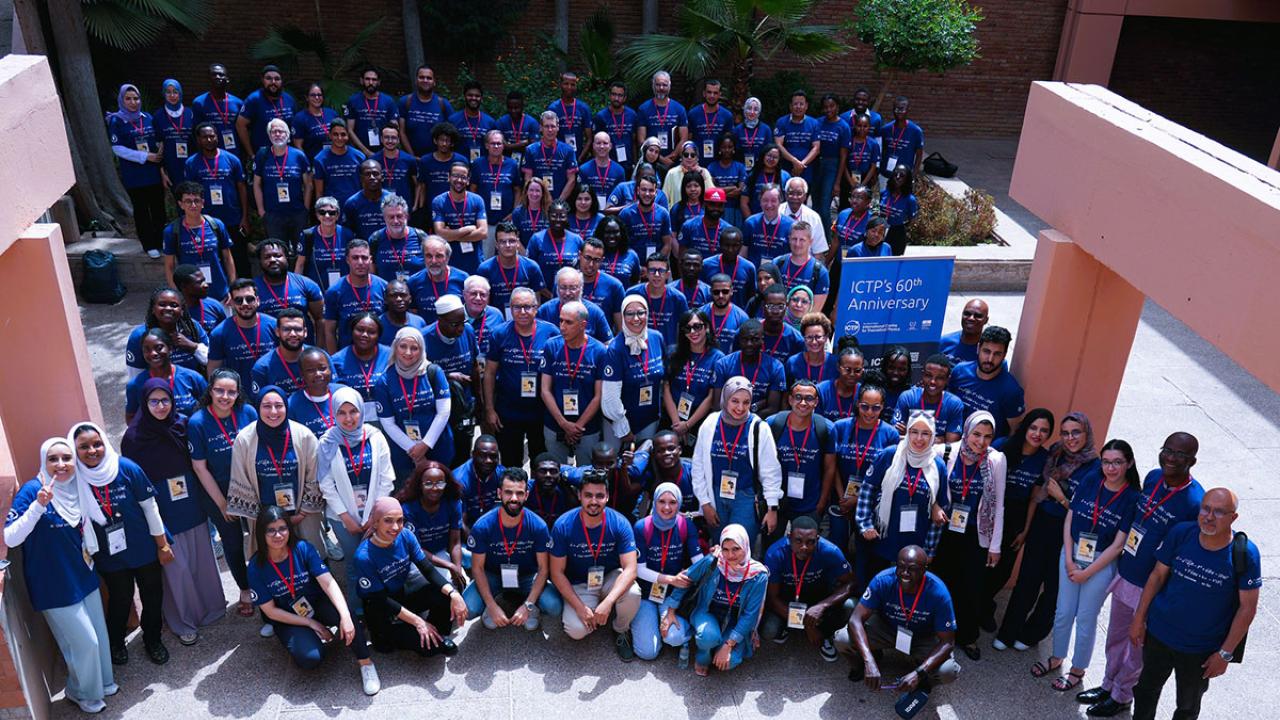
Fourteen years ago, ICTP joined a number of the world's top research institutes and laboratories in a vow to build up the African physics community. The group shared their knowledge about particle and nuclear physics with sub-Saharan African physics students by organising the first African School of Fundamental Physics and Applications (ASP). In a part of the world lacking high energy physics experts and experimental facilities, the goal was to showcase innovative physics experiments, accelerators and technology to spark educational opportunities and career interest in these fields.
The success of that earlier effort has seen ASP blossom into a biennial event that now includes an international physics conference. Each ASP is held in a different African country, ensuring that the benefits of the school are shared throughout the continent. The ASP's latest edition took place at Cadi Ayyad University, Marrakesh, Morocco, from 7 to 21 July 2024, and was designated as an ICTP 60th anniversary special event (see the full calendar of these events here).
The two-week school brought together 143 (50 online plus 93 in person) university-level students (about 50% of whom were women) from 28 countries to learn about nuclear and particle physics, astrophysics and cosmology, accelerator physics, high-performance computing, quantum information and more. For many students, the school marked the first time they encountered some of these topics.
ICTP high energy physicist Bobby Acharya, one of the school's organizers since its beginnings in 2010, said that the school represents an international effort to build scientific capacity in Africa. "The school continues to grow, and it’s become a big deal in physics communities in and outside of Africa," says Acharya. He adds that school participants stay in touch via a alumni network, and some become lecturers at future schools. "It’s very exciting to see the calibre of the school participants increase so much over the years; the level of the students is very high," he says.
From its humble origins as a school, the ASP has grown in scope to include programmes for high school teacher training, outreach to high school pupils and forums to engage African policymakers in physics education and research. ASP 2024 included a training workshop for 80 high school teachers from Morocco, selected by their relevant Ministry, as well as a forum to engage African policymakers in physics education and research, and an outreach activity to more than 1000 high school pupils in the region of Marrakesh, organized from 15 to 19 April 2024 when pupils were still in school. This outreach to host country educators and policymakers is strategic: ASP organisers hope that the school will stimulate a boost in local physics education. “After the school, there could be some momentum to support the research and educational efforts of the local organizing committee,” says ASP co-organiser Kétévi Adiklè Assamagan of Brookhaven National Laboratory.
ASP has had a significant impact on the career development of its alumni: Dr. Mounia Laassiri, a postdoctoral fellow at Brookhaven National laboratory, attended ASP 2016 as a student and has been mentored by ASP lecturers. In 2022, she was invited to lecture at ASP, and soon afterwards was appointed to the International Organizing Committee (IOC). As a member of the IOC, she has increasingly taken on leadership roles, most notably in the organization of the third African Conference on Fundamental and Applied Physics and ASP 2024.
Photos from ASP 2024 can be viewed here.
Planning is already underway for the fourth edition of the African Conference on Fundamental and Applied physics in 2025 in Togo and the ninth edition of the African School of Physics in 2026 in Kenya.
















